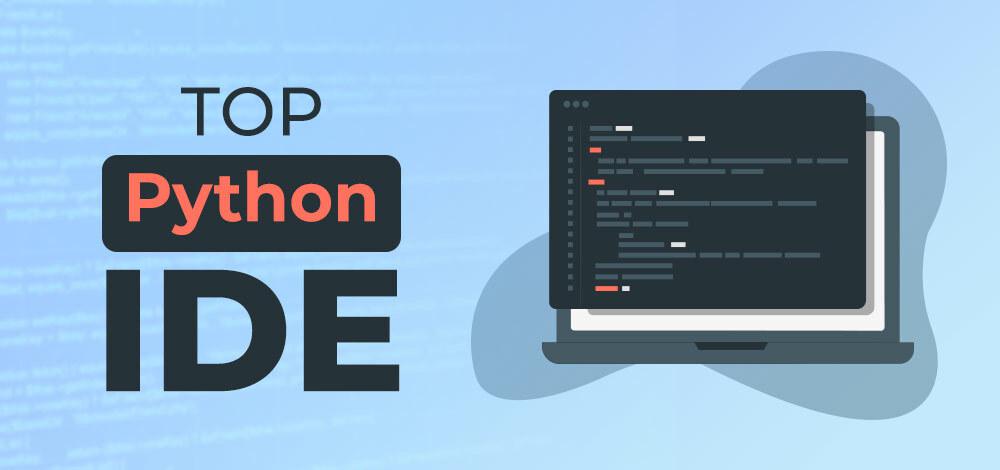Exploring Python IDEs
In software development, an Integrated Development Environment (IDE) is a powerful tool designed to streamline various stages of the Software Development Life Cycle (SDLC). It integrates features like editing, compiling, testing, and debugging, making it easier for developers to write, execute, and debug their code seamlessly.
When it comes to Python development, a variety of IDEs cater to different needs, from data science to web development. Here’s a look at some of the most popular Python IDEs that provide essential tools for creating and testing software effectively.

1. PyCharm
Developed by JetBrains, PyCharm is a robust, cross-platform Python IDE, available in both free (Community) and paid (Professional) versions. Known for its smart code navigation and strong debugging tools, PyCharm is widely used for its efficiency in managing everyday coding tasks.
- Features:
- Intelligent code navigation and auto-completion
- Real-time error highlighting and quick fixes
- Strong debugging and testing support
- Integrated tools for web development frameworks (e.g., Django, JavaScript)
2. Spyder
Spyder, short for Scientific Python Development Environment, is an open-source IDE ideal for data science and research. It includes tools like a variable explorer, a document viewer, and a local code editor, making it especially useful for scientific computing.
- Features:
- Syntax highlighting and code completion
- Deep integration with IPython console
- Supports multi-language editing
- Excellent support for scientific libraries like SciPy and NumPy
3. PyDev
PyDev is an Eclipse plugin that brings Python support to the popular IDE. This makes it an attractive option for developers with a background in Java. PyDev supports a range of features designed to streamline the Python coding process.
- Features:
- Refactoring, debugging, and code analysis tools
- Supports virtual environments and Python linters (e.g., PyLint)
- Integration with Django and support for remote debugging
Download New Real Time Projects :-Click here
4. Atom
Atom is a modern, open-source text editor developed by GitHub. Built on the Electron framework, it supports a variety of programming languages, including Python, and allows for extensive customization through plugins.
- Features:
- Cross-platform compatibility (Windows, macOS, Linux)
- Markdown preview with plugins for visualization
- Ideal for collaborative projects with built-in Git and GitHub integration
5. Wing
Wing is a feature-rich Python IDE that supports cross-platform development. It is available in both free and paid versions, with the latter offering a robust suite of development tools.
- Features:
- Customizable interface and plugin support
- Test-driven development support and unit testing
- Remote development capabilities
6. Jupyter Notebook
Jupyter Notebook is a web-based IDE particularly popular in the data science community. Its notebook format is ideal for creating and sharing documents containing live code, visualizations, and explanatory text.
- Features:
- Supports Markdown for notes and documentation
- Interactive, beginner-friendly environment
- Excellent for data visualization and exploration in data science
7. Thonny
Designed with beginners in mind, Thonny is a lightweight, open-source Python IDE. Its user-friendly interface makes it a popular choice for those new to Python programming.
- Features:
- Simple debugger and easy-to-use interface
- Highlights syntax errors and offers code completion
- Tailored for teaching and learning programming
https://updategadh.com/category/php-project
8. Rodeo
Rodeo is a Python IDE designed with data science in mind, providing tools for data analysis and visualization. It is particularly beneficial for those who need to gather data from various sources for analysis.
- Features:
- Built-in data comparison and plotting tools
- Code auto-completion and syntax highlighting
- Visual file navigation for easy data inspection
9. Microsoft Visual Studio
Microsoft Visual Studio, while traditionally known for C++ and C# development, also supports Python. Its extensive debugging capabilities and plugin marketplace make it a powerful choice for Python developers working on complex projects.
- Features:
- Available in free and paid versions
- Git integration and extensive debugging tools
- Marketplace for Python-specific extensions and plugins
10. Eric
Eric is a flexible, open-source IDE for Python that provides tools for both professional and personal projects. It has a plugin system that allows users to extend its functionality, making it highly adaptable.
- Features:
- Customizable editor with source code folding
- Advanced version control and task management
- Built-in debugger and project management tools
Each of these Python IDEs brings its unique strengths to the table. Whether you’re an experienced developer or just starting out, choosing the right IDE can make a significant difference in productivity and ease of coding. The right Python IDE will not only support your development needs but also enhance your overall coding experience, helping you bring your projects to life more effectively.
- pycharm
- Exploring Python IDEs
- best python ide for beginners
- free python ide
- python ide online
- best python ide for windows
- Exploring Python IDEs
- best free ide for python
- python ide download
- Exploring Python IDEs
- best python ide for mac
- Exploring Python IDEs
- exploring python ides for beginners
- Exploring Python IDEs: A Guide to Popular Development Environments
- Exploring Python IDEs
